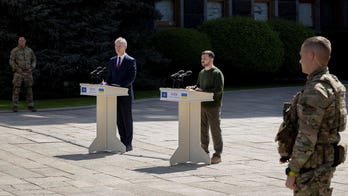The United States and five other Group of Seven countries, along with the European Union, have announced they will send lower-ranking envoys instead of ambassadors to this year's atomic bombing memorial service in Nagasaki, Japan, due to the exclusion of Israel from the event.
The decision to downgrade representation at the Nagasaki memorial service stems from concerns raised by the United States and its allies over Nagasaki's decision not to invite Israel to the event. Nagasaki Mayor Shiro Suzuki defended the exclusion, citing concerns about "possible unforeseen situations" such as protests, sabotage, or attacks on attendees. However, the United States and its allies have expressed their disappointment and concern, stating that treating Israel on the same level as Russia and Belarus, the only other countries not invited, would be misleading.
In a joint letter, envoys from the United States, Canada, France, Germany, Italy, the United Kingdom, and the European Union urged Nagasaki to reverse its decision and invite Israel to preserve the universal message of the city's ceremony. The envoys stressed that the exclusion of Israel would make their "high-level participation" difficult.

US, Allies Downgrade Representation at Nagasaki Atomic Bombing Memorial Over Israel Exclusion
Despite the appeals, Nagasaki Mayor Suzuki has maintained his decision, stating that he wants to hold the ceremony in a peaceful and solemn atmosphere to honor the victims of the atomic bomb. He denied that the decision was based on political reasons.
The United States Ambassador to Japan, Rahm Emanuel, will not attend the Nagasaki atomic bombing memorial service on Friday but will instead honor the victims at a ceremony at a Buddhist temple in Tokyo. The U.S. Embassy stated that Emanuel's absence is due to the politicization of the event caused by Nagasaki's decision not to invite Israel.

US, Allies Downgrade Representation at Nagasaki Atomic Bombing Memorial Over Israel Exclusion
The exclusion of Israel from the Nagasaki ceremony has sparked a diplomatic controversy. The United States and its allies have criticized the decision, while Nagasaki officials have defended it, emphasizing the need to maintain a peaceful atmosphere at the event.
The atomic bombing of Nagasaki on August 9, 1945, killed approximately 70,000 people and played a significant role in ending World War II. The city has since become a symbol of peace and nuclear disarmament.
The memorial service in Nagasaki is typically attended by high-ranking government officials and representatives from around the world. The decision to downgrade representation by the United States and its allies is a rare diplomatic snub and highlights the ongoing tensions surrounding Israel's role in international events.
The controversy over Israel's exclusion from the Nagasaki memorial service has also raised questions about the future of the event and its message of peace and reconciliation. Some experts have expressed concern that the politicization of the ceremony could undermine its universal appeal and message of nuclear disarmament.










